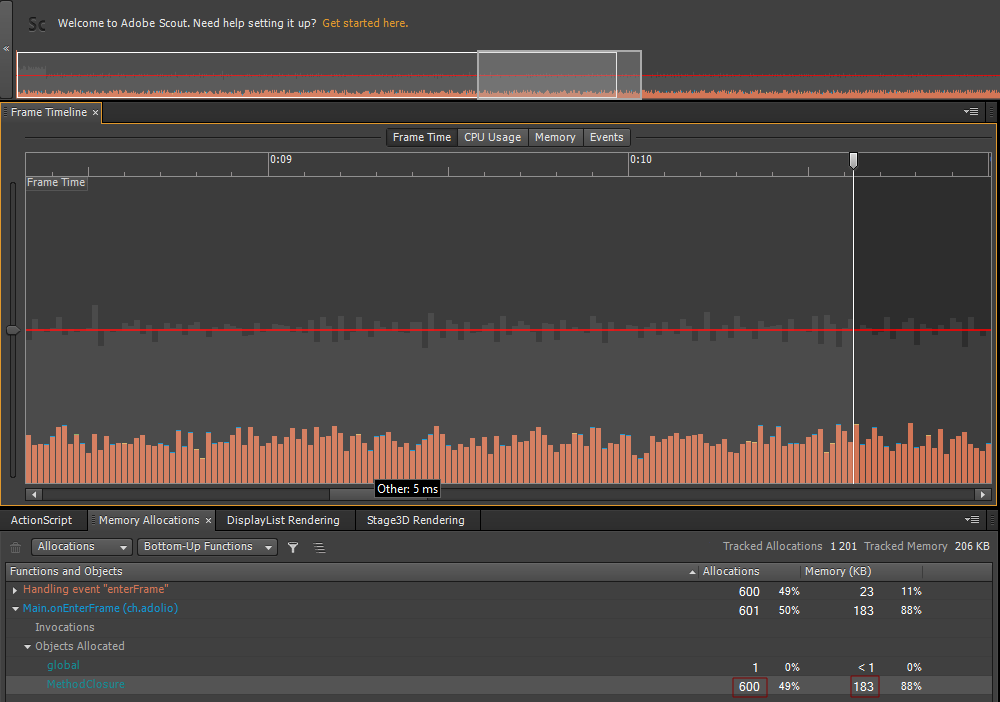Hi
We've had a quick look here as it depends on what's within that onEnterFrame method to see whether the method closure will get created... it seems like this may be a restriction somehow in how ActionScript/avmplus works! Because getTimer() is a function on its own, rather than being a class member, there is a flag being set to tell the avmplus to generate a method closure for it. I'm not sure whether this is actually valid, or whether it's something that needs to be investigated/corrected, but it's quite low-level stuff.
The simplest option would probably be for all functions like this to be turned into methods, so that they have a normal calling pattern which would then eliminate the problem..
There is actually a workaround:
private var myGetTimer : Function = null;
private function onEnterFrame(e:Event):void
{
if (!myGetTimer) myGetTimer = getTimer;
myGetTimer();
}which limits there to just being one method closure which is assigned to myGetTimer and then reused.
thanks

Problem Description
Call to
flash.utils.getTimer()generates (at least) oneMethodClosureper frame (~18KB / second).If possible, removing those allocations would help to reduce frame rate drop when the
GCis passing by.Simulation on
600frames at60fps:Code to Reproduce
Known Workarounds
Unknown